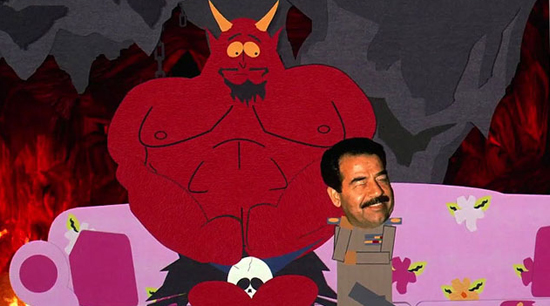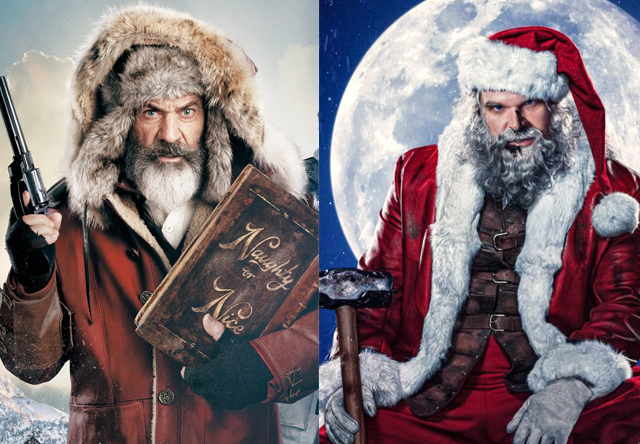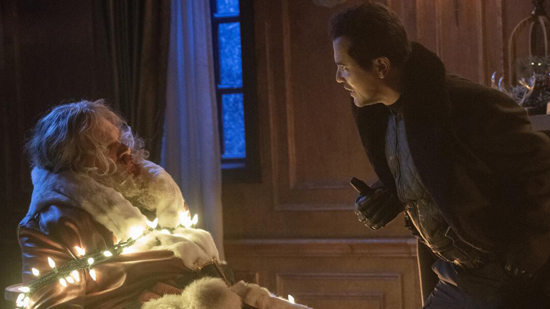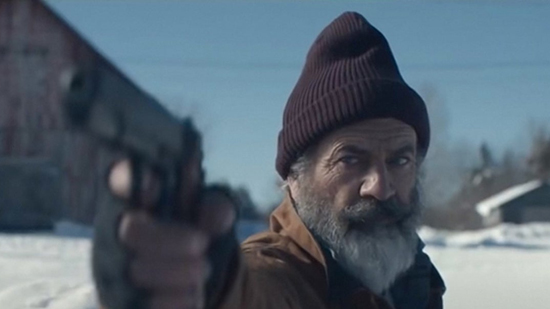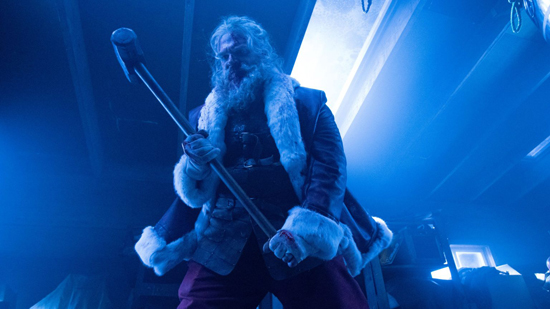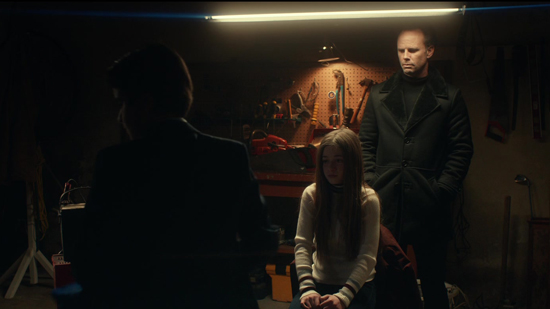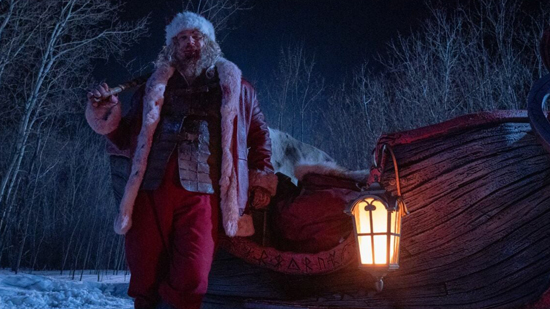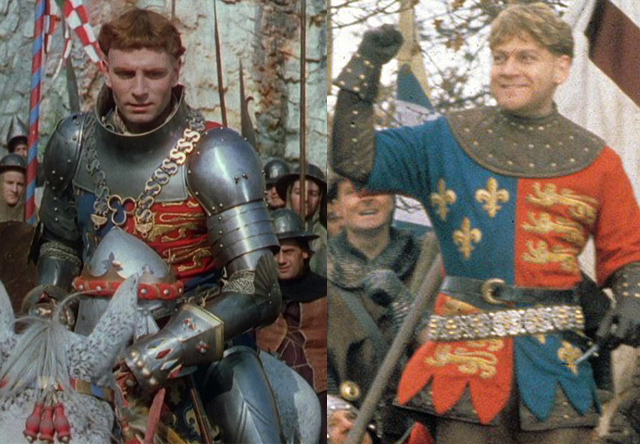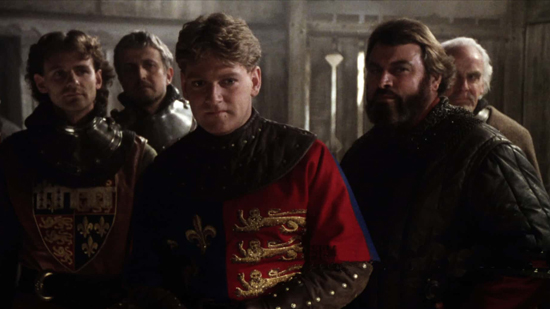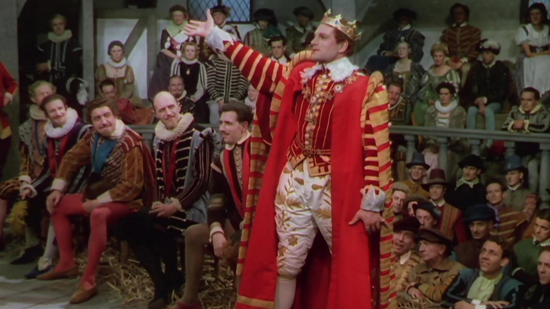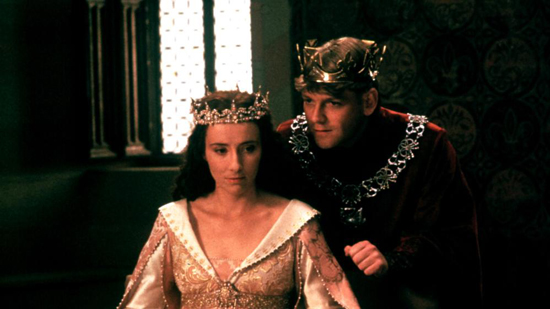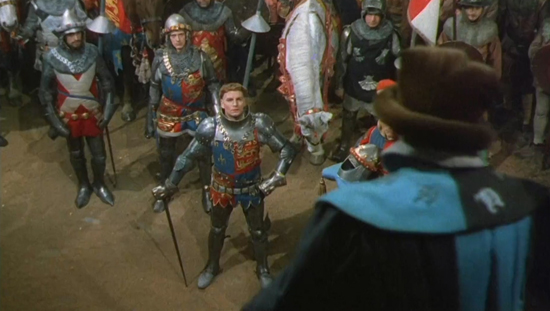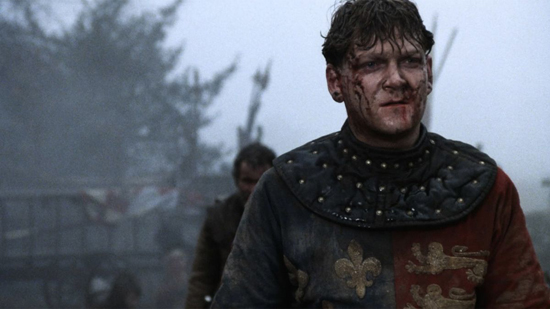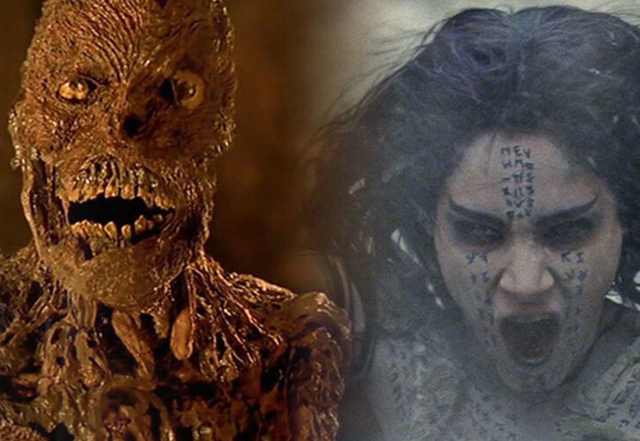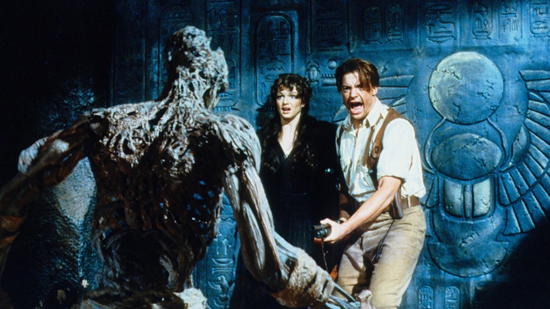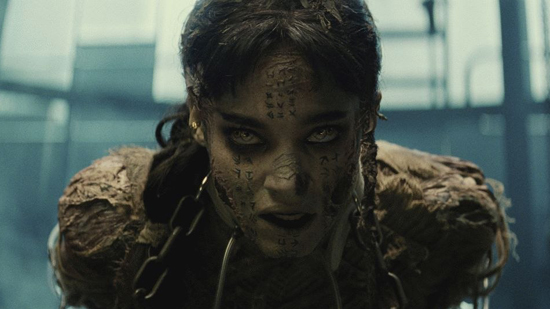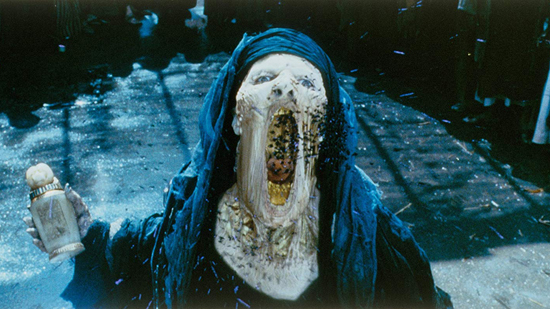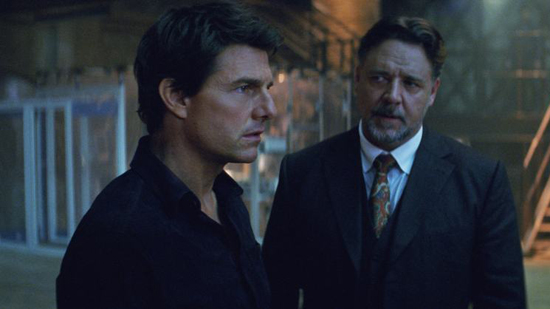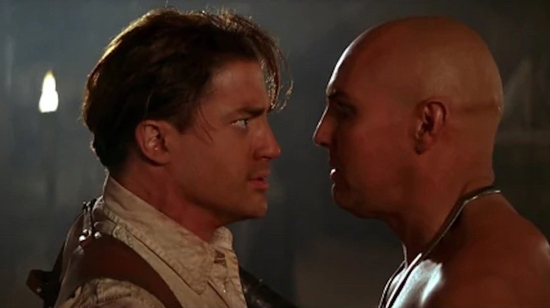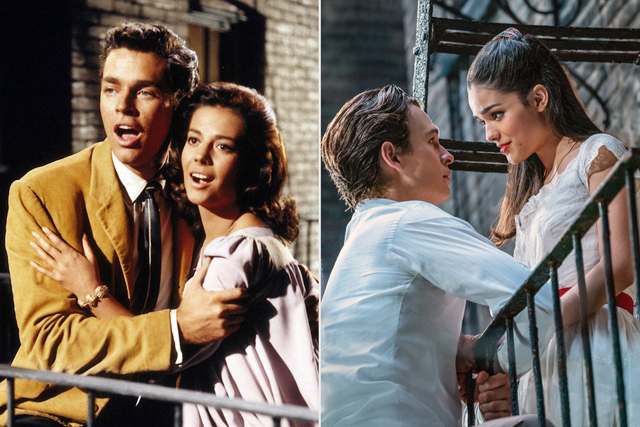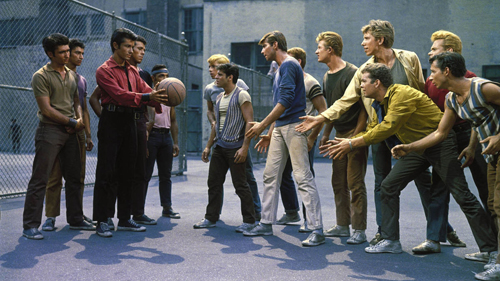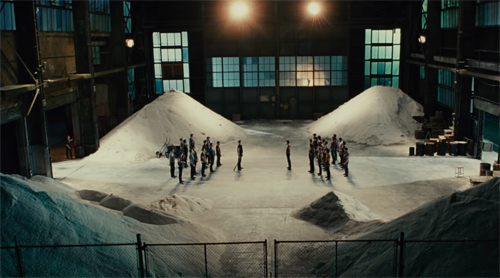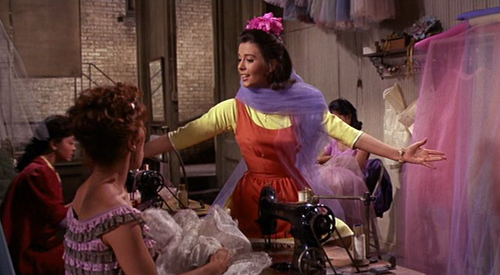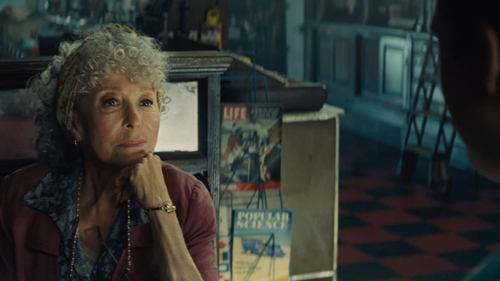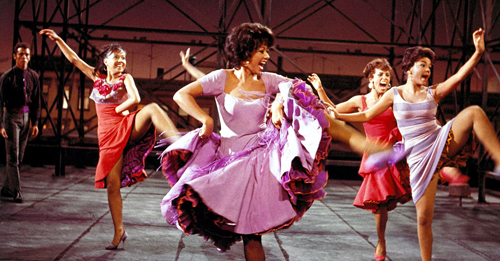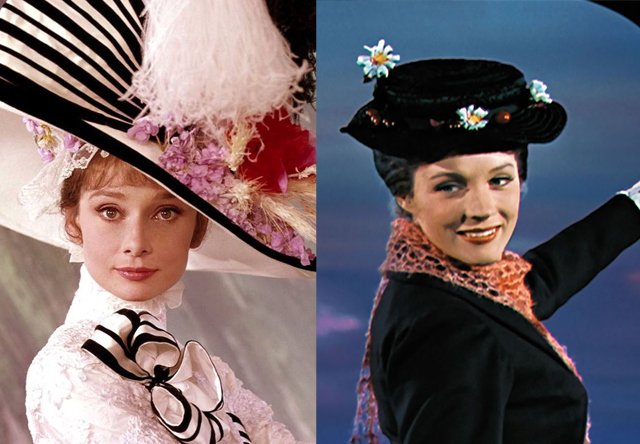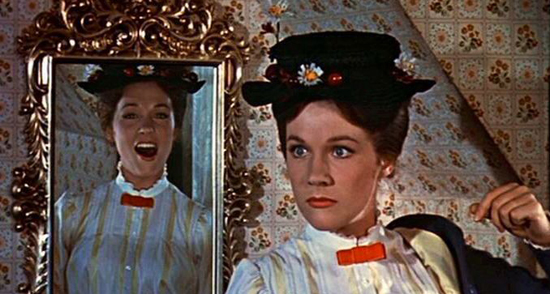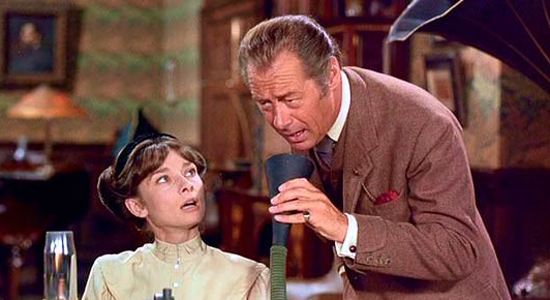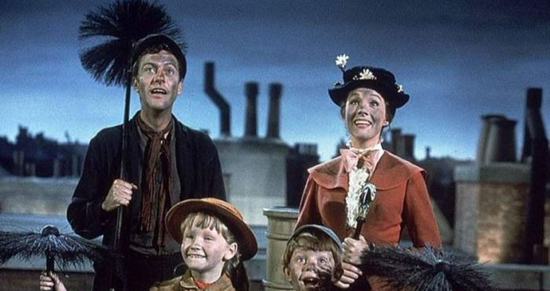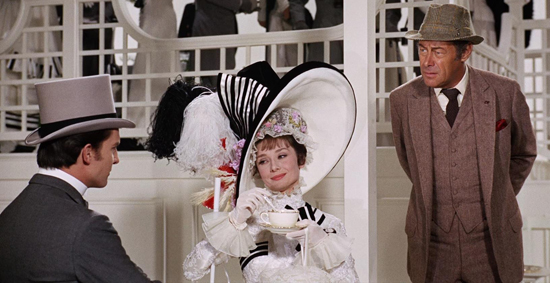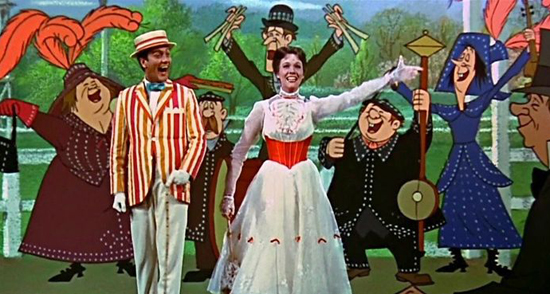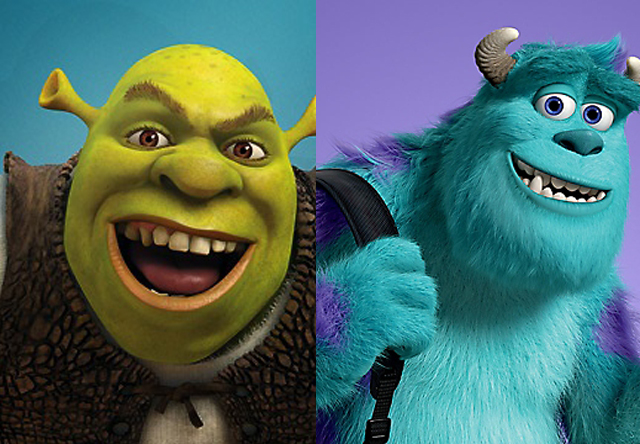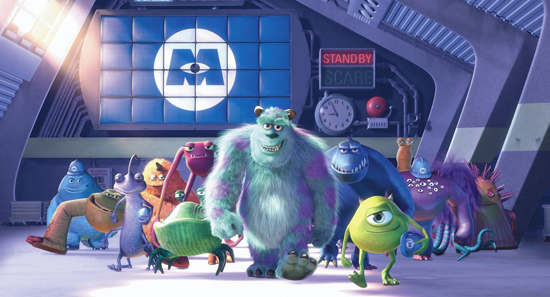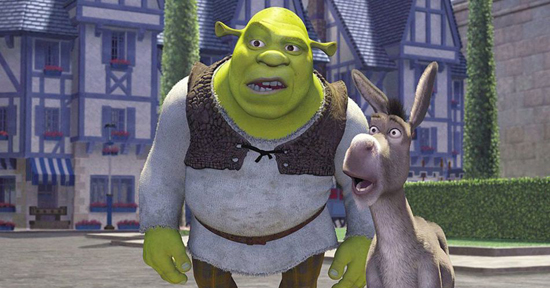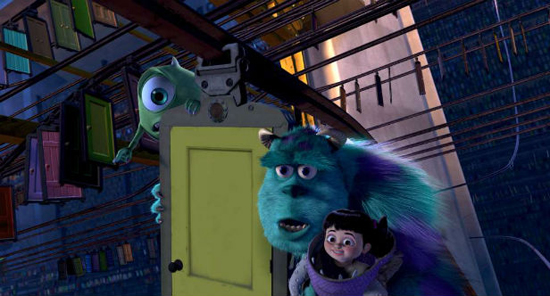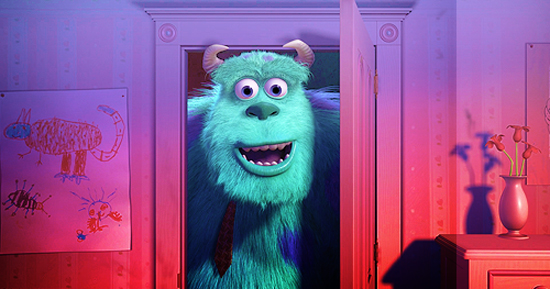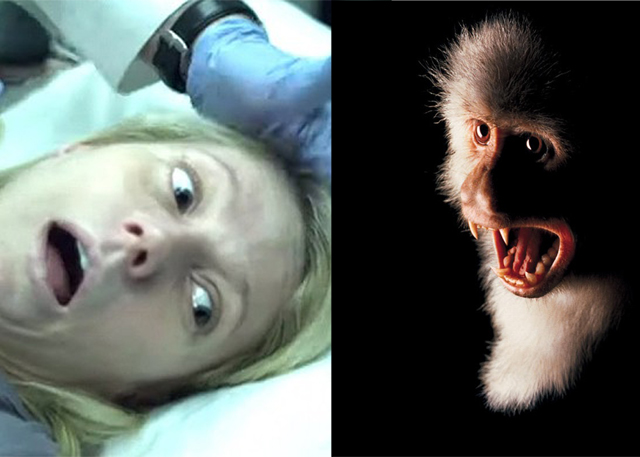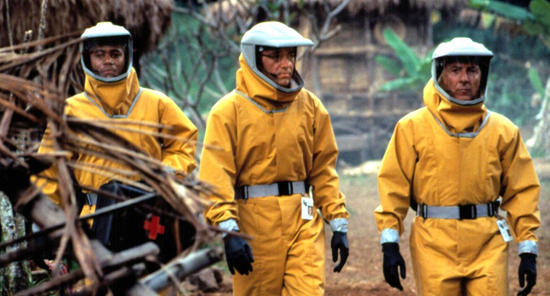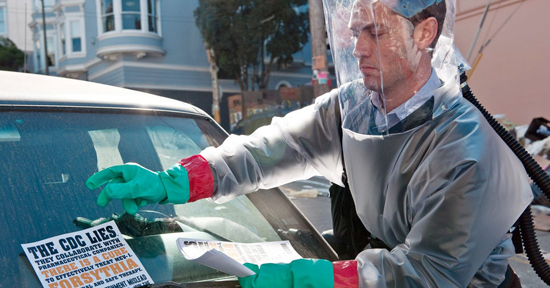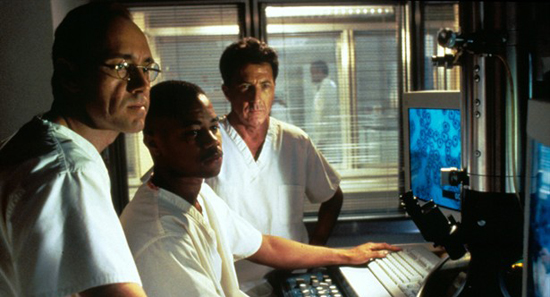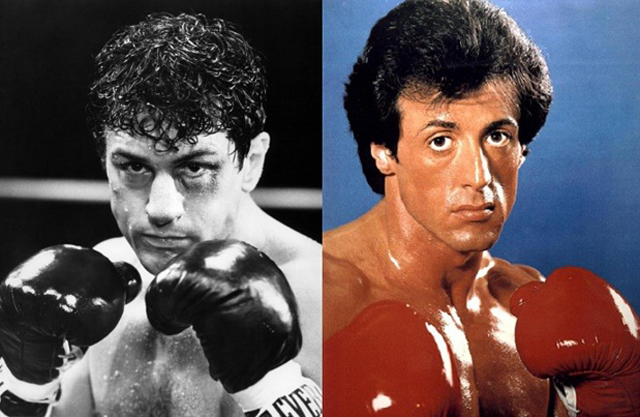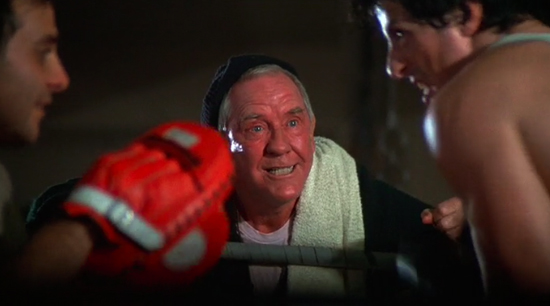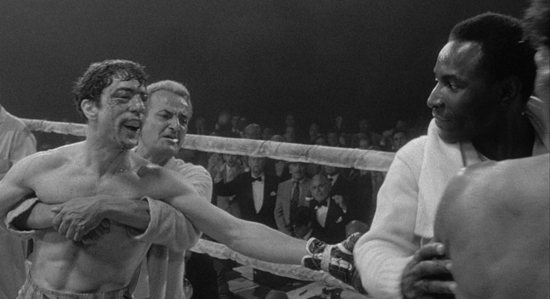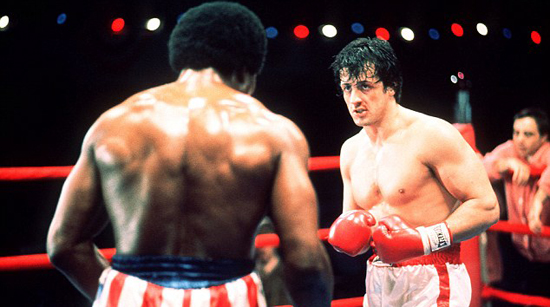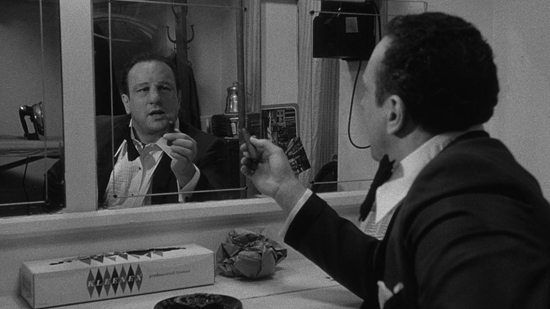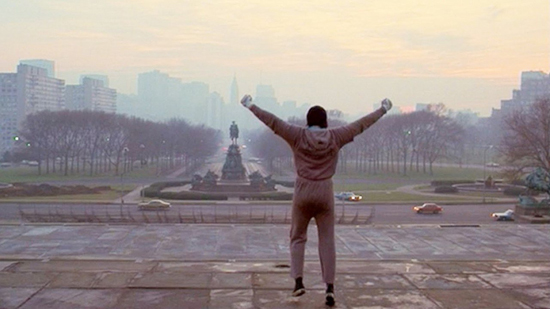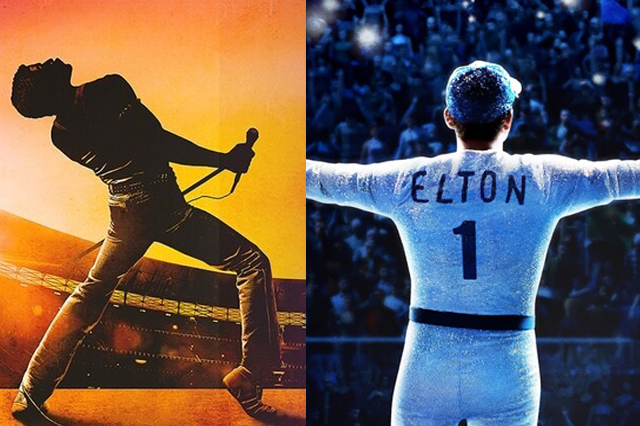
If there is one pattern that people tend to notice about the awards season it’s that performances that imitate real, noteworthy people usually get a lot of attention. Even more so, it’s performances based on famous entertainers that are recognized even more so. It’s through this that you really start to notice the internal bias of the film industry, where they will be extra generous to movies or performances that reflect kindly onto their own community. In many cases, it helps if an actor is portraying a public figure that many in the voting bodies of Hollywood either knew personally or had a strong familiarity with. Of course, it matters that the performances are good as well. People know who these public figures are, so the imitation has to be spot on. But sometimes the accuracy of the imitation may end up lamp shading the faults of the movie, and that’s where you see the bias come out the most as industry insiders may cast favor on a movie that doesn’t deserve the praise as long as they got the imitation right. Even more so, it also helps a movie to have a killer soundtrack to go along with their entertainer’s life story. In recent years, we have seen a proliferation of a subgenre known as the musical biopic and it’s mainly due to a recognition that there is that built in bias in the industry when it comes to celebrating movies about their own community. We’ve had movies devoted to legendary performers such as Johnny Cash, Ray Charles, the rap group N.W.A., Aretha Franklin, Whitney Houston, and this season’s golden boy Bob Dylan. And on the horizon, there are musical biopics being devoted to Michael Jackson and Bruce Springsteen. While these movies have varying degrees of success, there is also something that has become apparent about the subgenre, which is that it is very much defined by formula.
Like a lot of other biopics about famous figures, the musical biopic definitely sticks with the cradle to grave template of telling a life’s story. But what many of these movies usually fail to do is to treat their subjects like real people. There are some laughably mediocre biopics that make it appear like the famous singer or performer came into this world pre-formed and ready to change the world from the day they were born. It’s the same formulaic progression, the performer takes the stage for the first time, gets noticed out of the blue by someone with connections, becomes an instant success, goes through a burnout period because they can’t deal with being controlled and then finally achieves their greatest success on their own terms. What a lot of these movies leave out is the actual tedious hard work that these performers had to get through in order to build their careers. Essentially, these movies want to be about the icon and not the human being. Musical biopics read like a bullet point list of all the benchmarks of the entertainer’s career, and quite a few fail to do much more than to show the highlights. One of the reasons this happens is because, particularly when it’s about famous singers and musicians, in order to have the rights to the music the filmmakers must first get the approval from the actual person that the movie is about, or get permission from their estate if they are no longer around. Because of this, you see a pattern of musical biopics that treat their subjects with kid gloves, which often ends up taking all of the intrique and conflict out of their life story. But, not all musical biopics fall into this trap, and some actually manage to rise above formula by actually taking risks. There are two recent musical biopics in particular with a shared history that represents this dichotomy between playing things safe and taking risks, and it’s interesting comparing how one clearly understands the idea of making a cinematic story out of a real person’s life so much better.
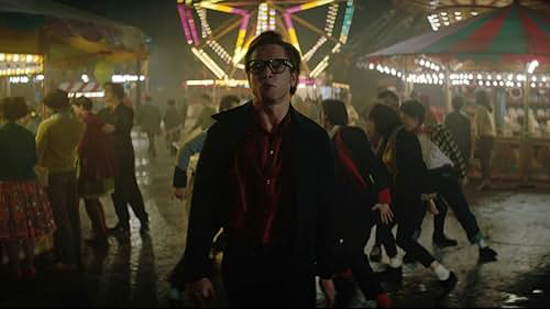
“I’m Elton Hercules John”
In 2018, 20th Century Fox embarked on the making of a musical biopic based on the legendary rock band Queen. That film would take it’s title from the band’s signature song, the ground-breaking Bohemian Rhapsody. Two of the surviving band members, Brian May and Roger Taylor were very involved in the making of the movie while the other surviving member, John Deacon, refused to participate. Of course, the fourth member of the band, front man Freddie Mercury, has been long deceased, which makes the portrayal of him in the movie a bit skewed. The portrayal of Freddie Mercury within Bohemian Rhapsody is mostly being presented to us second hand based on those who worked with him. Mercury never got a chance to tell his own story his way, so with Bohemian Rhapsody, we are being presented with a portrait of him as others saw him. It’s a prime example of a movie presenting a figure more as an unknowable icon rather than a relatable human being. Sure, the movie gives us an impressive imitation of the man with Eygptian- American actor Rami Malek doing a fair send up of the British-Persian music icon, but the movie doesn’t know how to delve any deeper than to show what a dynamic performer he was. Meanwhile, the following year saw Paramount Pictures deliver a musical biopic based on the life of singer Elton John called Rocketman (2019). In this case, Mr. John himself gave his own personal consent to everything that was going to be shown in the movie about him, and the surprising thing about the film is just how brutally honest it is. While Bohemian Rhapsody is so careful to create an idealized version of it’s subject, Rocketman presents a warts and all portrait of it’s subject, which in many ways feels more honest and true to the character of Elton John himself. It’s a very strong contrast between these two examples of musical biopics, and it makes it all the more perplexing knowing that they shared a director. Well, 1 and a half of the movies were directed by the same person.
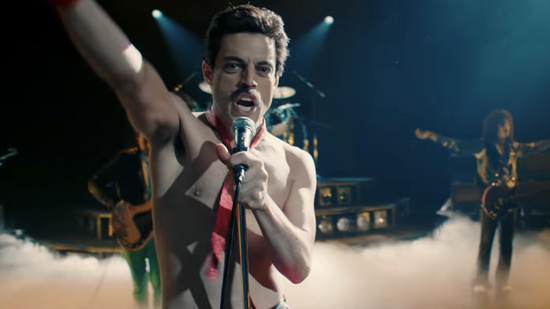
“There’s only room in this band for one hysterical queen.”
The making of Bohemian Rhapsody was something of a disaster for the most part. The film was originally set up to be directed by Bryan Singer of X-Men (2000) and The Usual Suspects (1995) fame. However, Singer proved to be a highly unreliable presence on the set. There was a weeks long period of absence that Singer himself says was related to family emergencies, but others involved with the film attested that there was a pattern of Singer showing up late to filming constantly, which was putting a strain on the film’s shooting schedule and budget. Ultimately Fox had to fire him mid-way through the shoot, leaving the movie without a director and in danger of shutting down. And this was bad considering the years it took for the movie to actually get off the ground in the first place. Eventually, Fox turned to actor/director Dexter Fletcher to get the movie past the finish line. It wasn’t easy, given that Fletcher was preparing to film his own musical biopic, which just happened to be Rocketman. Bohemian Rhapsody did get finished, but it’s troubled production is still very visible in the final film. The movie is very awkwardly edited together, which is evident of the patchwork assembly of all the footage they had to work with from two different shooting teams. This accounts for the formulaic way that the film comes across, merely going moment by moment through the high an low points of Queen’s history as a band. It’s a movie without a vision. Contrast that with Rocketman, which was Dexter Fletcher’s baby from the get go. You see a much clearer vision presented in that film as it flows through a much more consistent style. What even better is that Rocketman accepts the trappings of cinema even more, as it is presented less like a straight forward drama, and more like a musical.
Rocketman avoids a lot of the pitfalls of musical biopics by not making the story just a linear line from beginning to end. It’s given a framing device of Elton John entering rehab for the first time (hilariously still dressed in one of his elaborate stage costumes) and pouring out his heart to everyone, which gives us the more insight into him as a person. The songs we all know from his career are present, but they are woven into the plot rather than used as a road marker. There’s a great one-shot style presentation of “Saturday Night’s Alright” to show John in his rebellious youth days, or the song “Honky Cat” to show a musical montage of him living it up in the high life. Like all great musicals, these songs move the story along, while the story itself presents a portrait of the man as he tries to find his identity. The framing device of him being in a rehab works very well, as we keep cutting back to him throughout the film, taking one more piece of his costume off each time in a metaphoric disrobing of the man, until he finally is just himself by the end, sans the flamboyant character he created. He walks in as Elton the icon, and by the end we are left with Reginald Dwight the man, comfortable about who he is and what he had to do to get there. Dexter Fletcher uses the medium of film in a much more creative way than what we see in Bohemian Rhapsody. You can’t fault Fletcher for that part, as he was there to merely help get the film past the finish line. The movie is definitely more of a reflection of Bryan Singer’s indifference to the subject. It was clearly a movie made without love or care, and it just follows the formula without passion. The sad thing is, if there was ever a band that deserved an unconventional biopic, it was Queen, given just how genre defying they were. It especially reflects bad on the music, as the songs are just there without anything remarkable about them. It even has that musical biopic cliché where you see the band members hear one of their team play a new tune, in this case John Deacon (played by Joseph Mazzello) playing the guitar riff of “Another One Bites the Dust,” and they all together say we should make that into a song. No such scene happens in Rocketman, by the way. The only musical moment in Bohemian Rhapsody that actually has cinematic weight to it is the recreation of Live Aid that makes up the finale, and that’s only because it’s Live Aid, a monumental moment in Queen’s history.
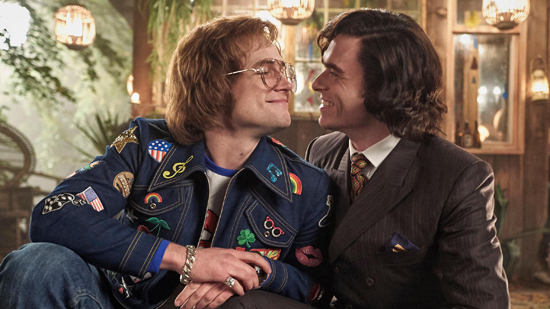
“Real love’s hard to come by. So you find a way to cope without it.”
Of course, the thing that gets these movies made to begin with is the opportunity for an actor to portray an iconic entertainer, which as we’ve seen gets some attention during Awards season. Both of the leads in each film are appropriately cast. You look at Rami Malek compared to the real Freddie Mercury and he does pull off the look very well. Of course, he needed the help of the prosthetic front teeth that recreated Mercury’s famous protruding upper jaw, which some have surmised helped Mercury to hit those high notes better as a singer. Malek also manages to pull off a decent British accent, though his speaking voice is perhaps a bit too deep compared to the real life singer. On the other side, Taron Edgerton also made a good lookalike for Elton John. It’s especially uncanny when you see him wearing the singer’s famous thick rimmed glasses. And he didn’t ave to fake a British accent either. But there is a very big distinction between the two actors in their performances, and it has to do with the ability to sing. Rami Malek can sing as an actor, just not like Freddie Mercury, so the majority of his musical performance is lip-synched to Mercury’s own original recordings of the songs. Edgerton on the other hand didn’t lip synch a single word in Rocketman. All of his performance is 100% his own voice, and it’s an astounding imitation of Elton John’s own performance style. And it’s not just Edgerton that does his own singing in the film, it’s the entire cast, keeping with the movie musical aspect of the movie. It was important to have a whole cast that could sing to Elton’s iconic tunes, and actors like Jamie Bell, Bryce Dallas Howard, and Richard Madden all contribute surprisingly soulful and spirited covers of these songs. Bohemian Rhapsody by contrast is karaoke. And yet, when it came to Oscar time, Rami Malek was the one who came away with a win while Edgerton and the entire Rocketman cast weren’t even nominated. Art can be subjective, but at times you’ve got to think that the members of the academy are musically tone deaf as well.
Thus far I’ve discussed just how much these two films contrast in terms of how they either stick to formula or break from it. Clearly Rocketman is the more groundbreaking film of the two, but there is one thing that undisputedly puts Rocketman way above Bohemian Rhapsody, and that’s the honesty that it displays with regards to it’s two subjects. It should be noted that Bohemian Rhapsody is a PG-13 rated movie, while Rocketman proudly wears it’s R-rating on it’s sequined shoulders. Anyone who knows about Queen, and in particular it’s front man Freddie Mercury, is that they did not live a PG-13 life. A lot of the true story of the band is left out and the whole thing makes the movie feel sanitized. In particular, it seems that the movie downplays Freddie Mercury’s sexual orientation in what may be an attempt to allow the movie to have broader appeal worldwide, including countries where something like that is forbidden. The movie can’t hide it completely, since it was such a major factor in Freddie Mercury’s public identity, as well as his eventual death from AIDS. But, there is unmistakably an effort to minimize it’s presence in the movie. It even has the audacity to make it seem like Mercury remained a frustrated bi-sexual in his final years, still with a crush on his first girlfriend, even though in real life he was almost exclusively with men towards the end. By contrast, Rocketman celebrates Elton John’s status as a queer icon and a major part of the movie is him gaining the courage to come out of the closet, a move that the movie presents as triumphant. These two movies both center around two of the first pop entertainers to ever declare their homosexuality to the world, and yet one of the movies isn’t ashamed to have that as a major feature of it’s story. It’s disgraceful if the decision was made to sanitize Freddie Mercury’s story purely for the sake of higher box office. Rocketman not only is the more cohesive and enriching cinematic experience, it’s also the more honest and braver of the two films as well.
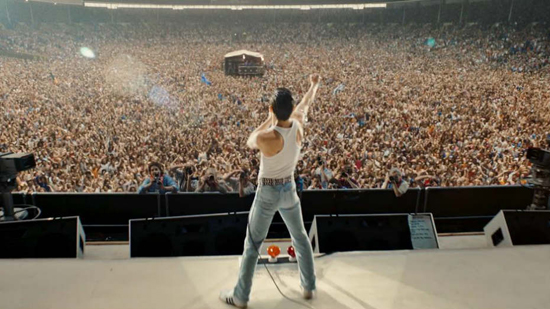
“I’m going to be what I was born to be; a performer that gives the people what they want: a touch of the heavens.”
Sadly, the selling out that Bohemian Rhapsody did may have worked in it’s favor. It did have the higher box office of the two movies, with nearly a billion dollar in grosses worldwide, as well as four Oscar wins, including Best Actor for Rami Malek. But critically, Rocketman was much better received and it has held up better in the years since. Since it’s released, Bohemian Rhapsody has been pointed to as the poster child for the worst kind of musical biopic. Every musical biopic cliche you can think off has a correlating example in the movie. It is by definition a movie by formula, where the biographical elements are presented purely as a bullet point outline of what happened, and not a deep dive into the psyche of it’s subject. It makes it all the more insulting that the original band members signed off on the film too; or at least two of them, given that one wisely refused to participate and the other is sadly no longer around to have his say. They’ll say that the movie is not supposed to be a Freddie Mercury biopic, but is instead a Queen biopic. But given just how much the movie centers around Freddie Mercury (because whether they like it or not he was the most famous member), the fact that they okayed a movie that underplays his status as a queer pioneer in entertainment feels a bit exploitative. Rocketman on the other hand boldly presents Elton John’s story with all the bad stuff included. John shows a great deal of self reflection in the movie, allowing the film to show him even as a major asshole sometimes. In many ways, it’s not a self aggrandizing film, but rather Elton John’s love letter to the people who helped to set his life right, in particular his long time lyricist and best friend Bernie Taupin (played by Jamie Bell in the film). It’s fitting in the end that Rocketman’s sole Oscar win was for an Original Song written just for the movie by both Elton and Bernie; the first time they’ve ever shared the honor. The movie is honest and personal, and ultimately is not a soulless cash grab like Bohemian Rhapsody turned out to be. Some of the better musical biopics in recent years, like Elvis (2022) and Better Man (2024) have thankfully followed more in Rocketman’s footsteps, and shown that it’s better to understand the singer more than the songs that they’ve created. What we see on a stage is a persona, but cinema helps us to see beyond that and find the character within. Bohemian Rhapsody merely just tries to pull you in with the music and the iconography. Rocketman presents us with a journey and ultimately it is the one “still standing” at the very end.
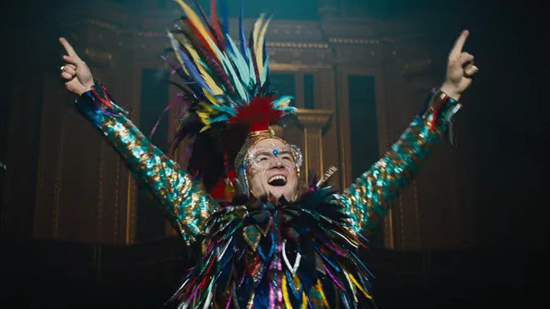
“For my next trick… I’m going to f***ing kill myself.”



